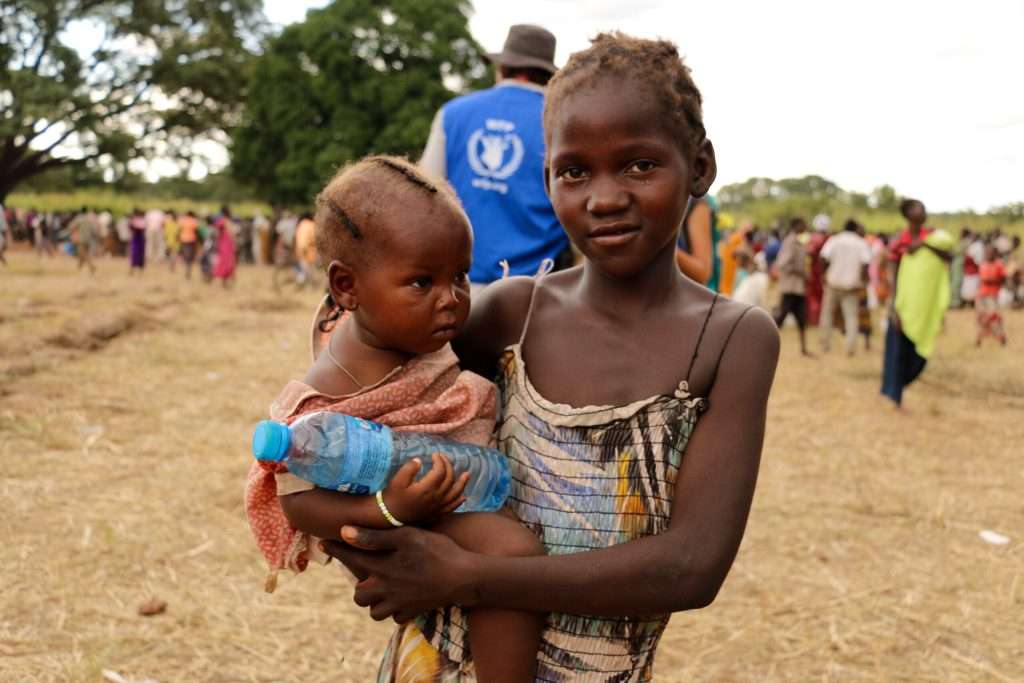Sudan extends opening of Adré border for aid to Darfur

South Sudan, Farajallah, Wau County. 23 September 2017. Food insecurity in South Sudan has reached the most extreme levels since independence in 2011. Famine has eased after a significant scale up in the humanitarian response but the situation remains dire across the country as the number of people struggling to find enough food each day has grown to 6 million. WFP and its partners have continued to deploy rapid response teams, exploiting windows of opportunity to reach people in need. WFP has provided treatment to malnourished children, pregnant women and nursing mothers, in addition to training community nutrition volunteers. In the photo: Girls during WFP food and nutrition distribution in Farajallah Photo: WFP/Lara Atanasijevic
Responding to international scorn, the Sudanese government has extended the opening of the Adré border crossing with Chad for another three months. The corridor is a critical channel for humanitarian aid, allowing temporary respite as mass starvation continues to ravage Darfur.
A statement from the Foreign Ministry on May 14th said the crossing would remain open specifically “for the delivery of humanitarian aid and assistance to those affected by the war in the country… starting from May 16th until August 15th,” reports the Middle East Monitor.
The decision follows a United Nations report on April 29th, which brought light to the spiraling crisis. In a 42-page document, the UN detailed the horrific atrocities enacted not only by the paramilitary Rapid Support Forces (RSF) but also by the governing Sudanese Armed Forces (SAF), including blocking aid to famine-afflicted areas.
In the statement, the SAF indicated that the decision stemmed from the state’s keenness to facilitate the flow of relief for war-affected citizens and its “positive cooperation and engagement with the international community.”
Since the outbreak of the devastating civil war in 2023, the government has exercised strict control over the Adré border crossing. In July 2024, it banned the entry of shipments through the crossing, claiming the RSF used it to transport weapons, which the latter denies.
Ever since, the border crossing has been opened sporadically. On 15 August 2024, it was opened for three months to allow the entry of humanitarian aid in response to a formal UN request.
Then, on 16 February, Khartoum extended the period the crossing would remain open for an additional three months for the same reason.
For over a year, the RSF has sought to wrest control over the Darfur states. Currently, it controls four of the five, and El Fasher, the capital of North Darfur, is frequently the site of brutal clashes with the army. Civilian casualties are frequent and devastating.
The UN has warned that the famine in Darfur could quickly worsen, especially in El Fasher.
Middle East Monitor/ Maghrebi
Want to chase the pulse of North Africa?
Subscribe to receive our FREE weekly PDF magazine












